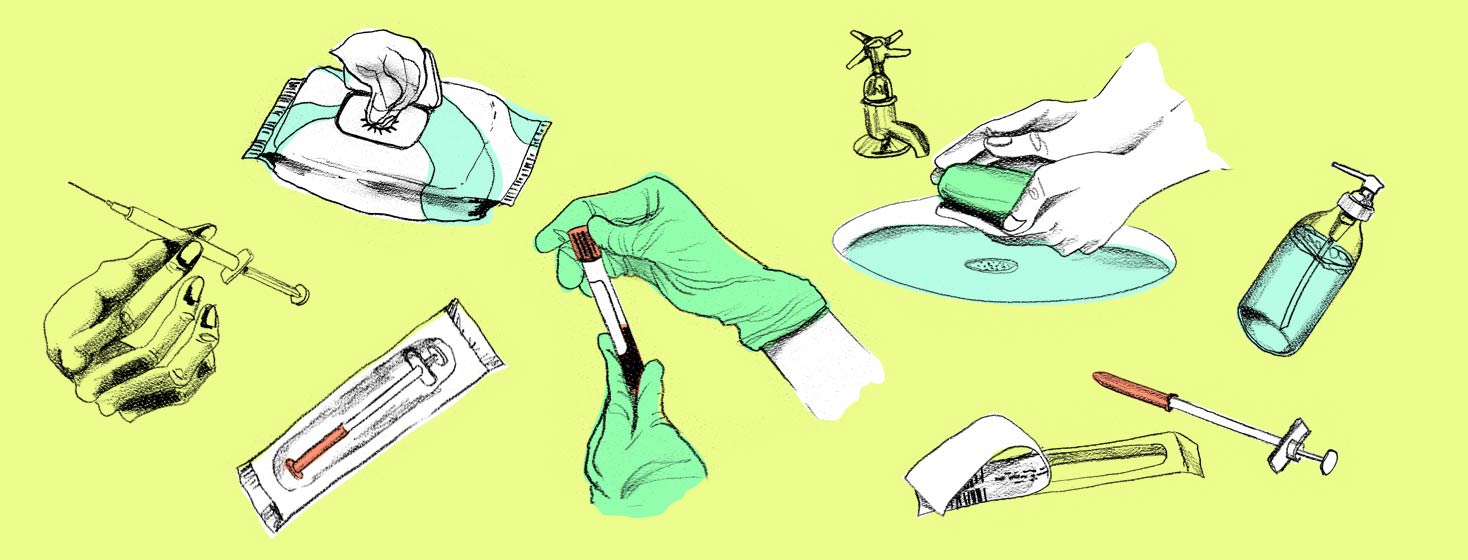What To Know About Hepatitis C and Injection Drug Use
Research shows that many people with hepatitis C are Baby Boomers (born between 1945 and 1965). There are many ways to contract hepatitis C. Today, increased use of injection drugs across the country is putting younger generations at risk for hepatitis C infection. In fact, the yearly rate of new hepatitis C cases has tripled since 2009, with the highest rate in people 20-39 years old.1
Hepatitis C spreads through blood-to-blood contact. People who use injection drugs have an increased risk of hepatitis C infection (HCV). But, there are ways for people who inject drugs to reduce the risk of getting infected.
People who use injection drugs should be tested for hepatitis C regularly, as hepatitis C may not show symptoms until liver damage can already occurred. More than 40 percent of the 2.4 million adults in the US who have hepatitis C do not know they have it. Regular testing and early diagnosis can help prevent chronic liver damage and reduce the spread of the virus.1
How is hepatitis C spread by injection drug use?
Any equipment used to prepare or inject drugs can spread HCV. The virus is infectious and easily spreads from surfaces contaminated with infected blood. In fact, the virus can survive on dry surfaces for up to 6 weeks. People who inject drugs can get hepatitis C from:2
- Needles and syringes that are shared or reused
- Preparation equipment, including cookers, cottons, water, ties, and alcohol swabs
- Surfaces that are reused to prepare equipment
- Fingers that contact infected blood
Once a person who uses drugs has hepatitis C, they are at risk of infecting other people too, usually within 3 years of their initial infection. So, regular testing and early treatment are particularly important.3
Other factors, such as mental health conditions, alcohol use, or being diagnosed with HIV increase the risk of hep C infection and serious liver damage.3
What can I do to minimize my risk of infection?
The best way to prevent hep C infection is to stop using drugs. Treatment programs and resources are available for those who want help. Some steps to reduce the risk of infection include:2
- Not sharing any equipment used to inject drugs
- Always using new sterile needles, syringes, and preparation equipment for each injection
- Setting-up a clean surface before putting down injection equipment
- Avoiding syringes with detachable needles because they retain more blood than syringes with fixed-needles
- Washing hands with soap and water before and after injecting
- Cleaning the injection site with alcohol or soap and water before injecting
- Applying pressure to the injection site with a sterile pad to stop any bleeding
- Handling your own injection equipment
Using new sterile syringes and equipment is the best way to prevent hepatitis C. If it is not possible to use a new syringe, the best way to kill HCV in used syringes is bleach. Use a solution of 1 part bleach to 10 parts water for 2 minutes to clean syringes.2
Other cleaning methods (boiling, burning, alcohol, and peroxide) may reduce the amount of virus, but they may not prevent you from getting an infection.2
Should I get tested?
Currently, less than 10 percent of people who inject drugs are tested for hepatitis C. If you have ever injected drugs, ask your doctor if you should be tested for hepatitis C. People who currently inject drugs should get tested regularly.4
The first test will be a blood test that looks for antibodies to HCV. A positive antibody test means that you were infected at some point in your life. You would then need an additional blood test called an RNA test. A positive RNA test means that you are currently infected with hepatitis C.5
Current hep C treatments cure more than 90 percent of people after just 8-12 weeks. Also talk to your doctor about other ways to reduce liver damage and avoid infecting others. Even after treatment, there is a risk of getting another HCV infection, so it is good to continue minimizing the risk of infection.5

Join the conversation